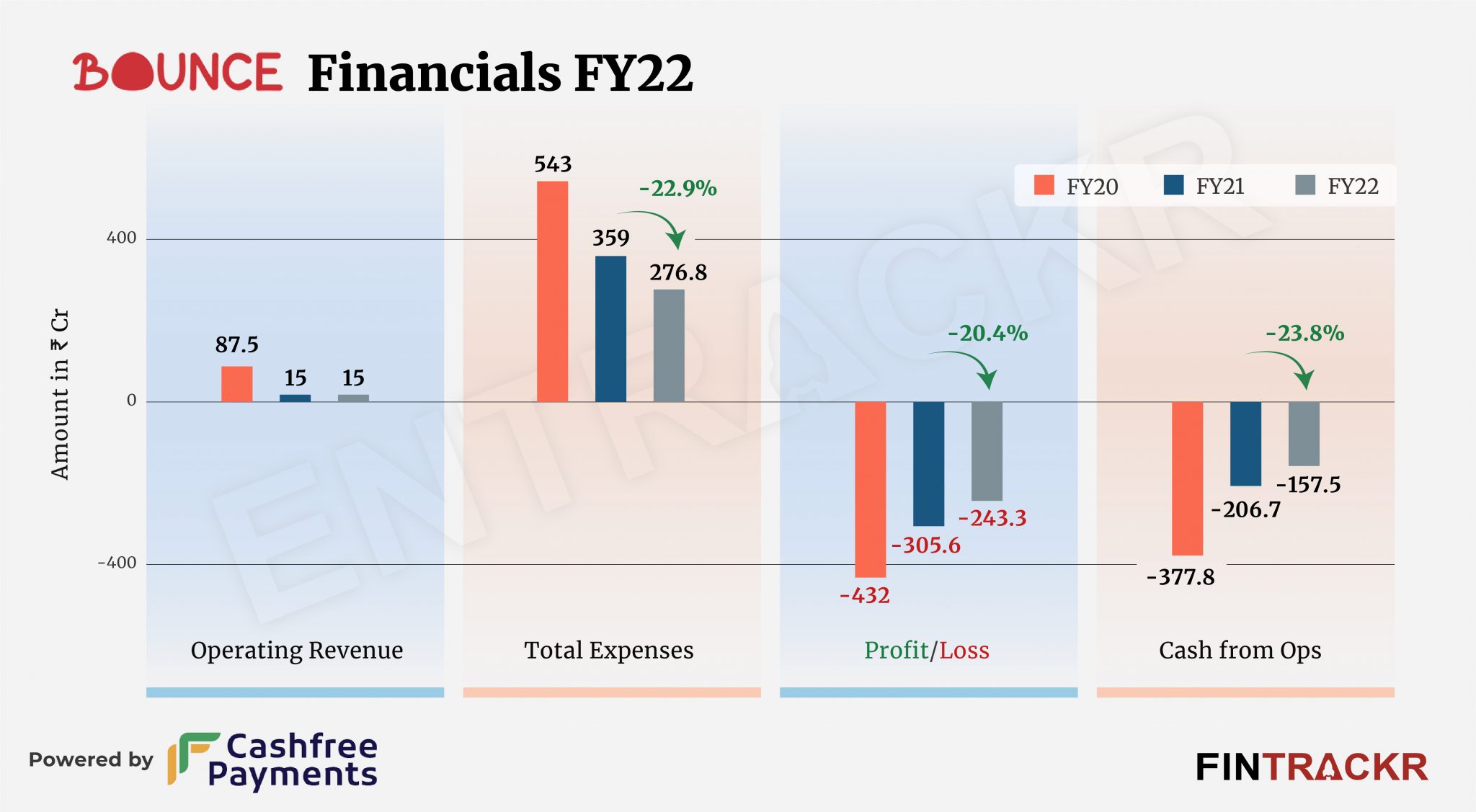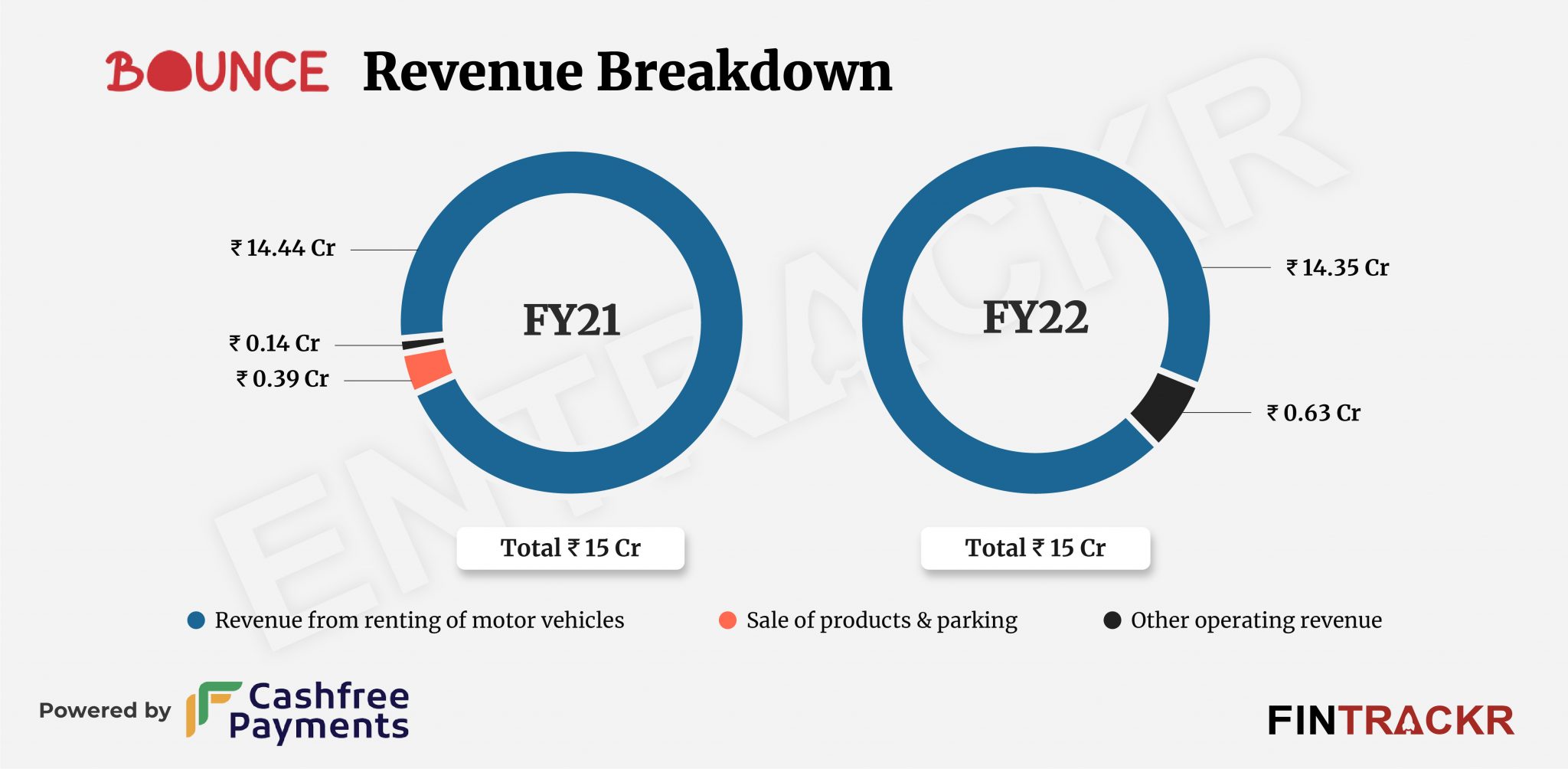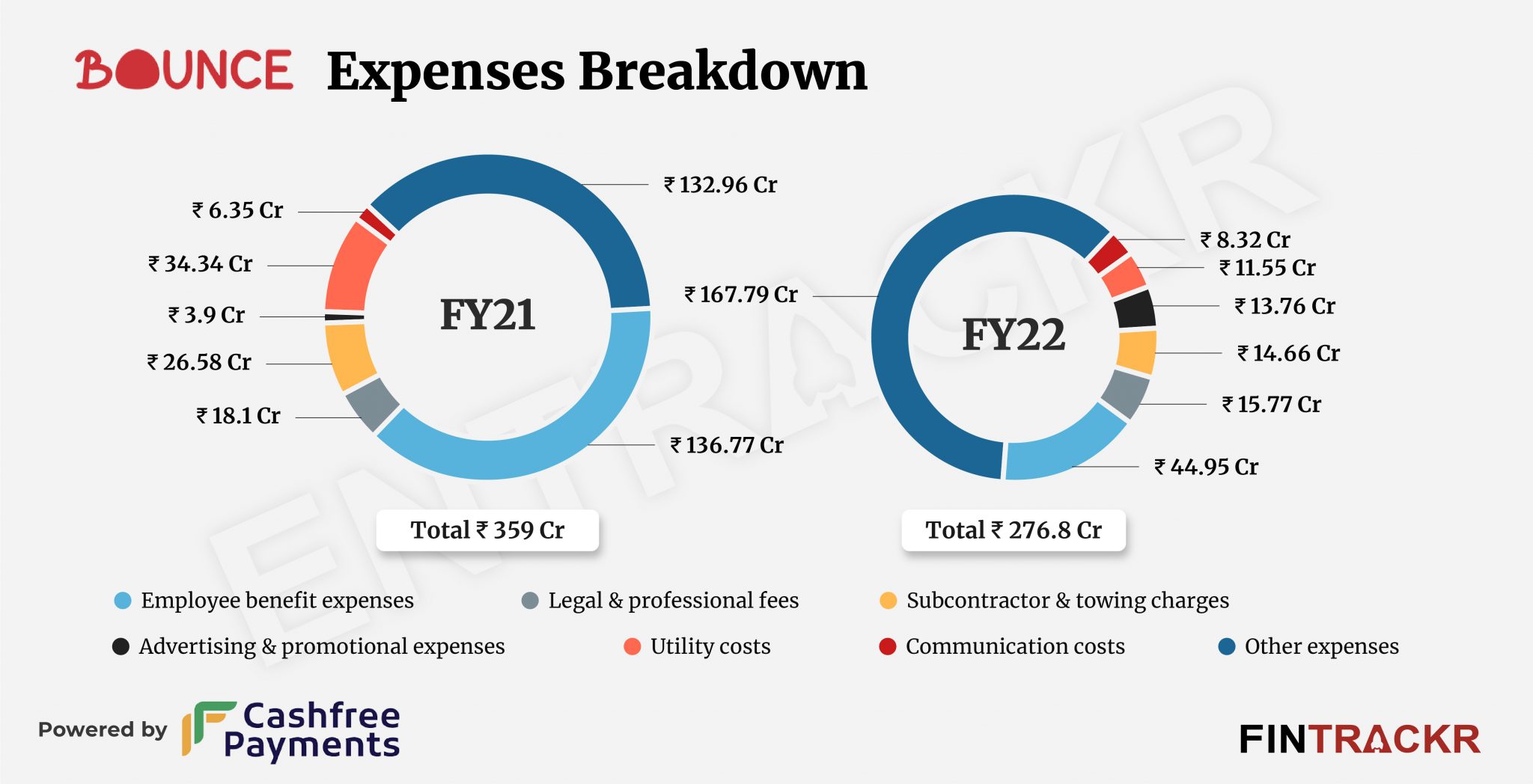In 2019, bike rental startup Bounce was all the rage — it bagged funding from Silicon Valley heavyweights, their yellow scooters were seen all around some of the big cities, and it gave a vision to be the next big thing for mobility in India. But then the pandemic hit and the company had to pivot: from a bike rental platform to a full-fledged electric scooter brand at the end of FY21.
It took a year (around end of FY22) for the company to launch its flagship model Bounce Infinity. But with all the crests and troughs, the firm remains at a pre-revenue stage in its new and core business.
That meant Bounce’s scale remained flat in FY22 as it recorded an operating income of Rs 15 crore, according to its consolidated annual financial statements with the Registrar of Companies (RoC). But it was able to narrow its losses by 20% during the same period.
We will talk about expense and loss later in the story. Let’s dig into its revenue generating services first.
Bounce made money from renting bikes and bicycles which contributed 95.8% of its total operating revenue. These collections slipped 0.6% to Rs 14.35 crore in FY22 from Rs 14.44 crore in FY21. For context, the company didn’t churn any income from e-scooters in FY22 as it pivoted to a new model during the same period.
Significantly, it didn’t make any revenue from the sale of products & parking this year while collections from other ancillary services climbed up 4.5X to Rs 63 lakh during FY22. Bounce also earned Rs 18.5 crore in interest on deposits and other non-operating income during the year which took its overall revenue to Rs 33.5 crore.
Bounce was a mobility solutions provider with a focus on two-wheeler- based rental and ride share services. Faced with a litany of issues both legal and structural, it pivoted to an e-scooter brand with battery charging and infrastructure services.
Heading towards expenses, it booked depreciation & amortization as the largest cost which shrank 32.6% to Rs 61.24 crore in FY22. Employee benefits expense also dwindled 67% to Rs 44.95 crore which also includes ESOP expense of Rs 7.12 crore.
For background, Bounce laid off 40-60% of its workforce in the last quarter of FY21 which resulted in 67% contraction in employee cost during FY22. In June 2020, it laid off around 130 workers.
Further, legal and subcontractor charges including (towing charges) went down by 12.9% and 44.8% respectively to Rs 15.77 crore and Rs 14.66 crore during FY22. Advertising & promotional expenses shot up 3.5X to Rs 13.76 crore while spending on communication inclined 31% to Rs 8.32 crore in FY22.
Bounce booked provision for bad and doubtful advances of Rs 75.46 crore which took its total expenditure to Rs 276.8 crore. However, its total expenses shrank nearly 23% as compared to Rs 359 crore in FY21.
While it kept a control over expenditure, the company’s losses narrowed down by 20.4% to Rs 243.3 crore during the last fiscal year as opposed to Rs 305.6 crore in FY21. Cash outflows from operations also fell off 23.8% to Rs 157.5 crore during FY22.
As per Fintrackr’s analysis, the EBITDA margin of Bounce weakened to -517% in FY22 which could be ascribed to flat operating scale and shrinkage in its non-operating income. On a unit level, Bounce spent Rs 18.5 to earn a rupee of operating income during the same period.
Bounce has raised over $220 million to date and was last valued at around $520 million followed by its $105 million worth Series D round in January 2020. As per a media report, Bounce is in talks to raise $200 million to ramp up its EV biz and probably to join the soonicorn list.
In October 2021, Bounce acquired 22 Motors in a cash and stock deal that strengthened its manufacturing chops. The Bounce portfolio also includes smart charging solution Zuink and Indian assets of Chinese bike sharing firm Ofo.
Bounce is investing in research and development to produce a range of EV innovations to advanced Battery Management Solutions (BMS) for battery management to reduce the charging time of electric vehicles. While these are aspects that have a growing market opportunity, it is obvious that the investor bets on Bounce have been on the founding team’s abilities. That places a unique responsibility on the founders to make the most of its pivot, and deliver the kind of traction that will make its investors smile.
In an otherwise tough run so far, the firm has shown enough glimpses of this ability. It will just hope for the long run without the regulatory potholes that have tripped it up so far.


















